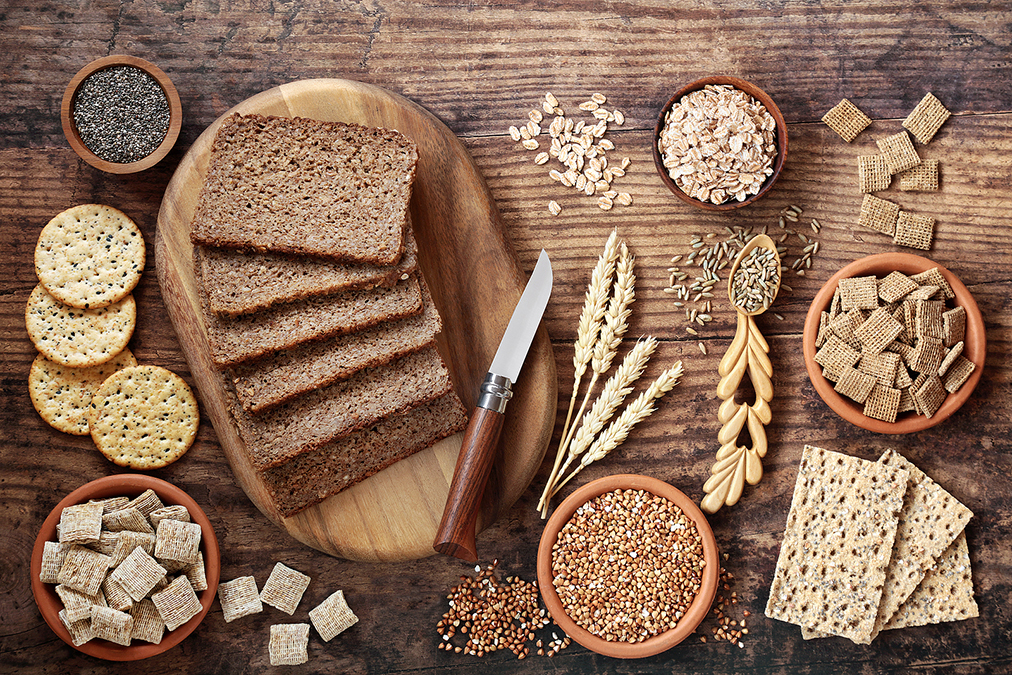 Gout is often linked to eating purine-rich foods like red meat, shellfish, and alcohol.
Gout is often linked to eating purine-rich foods like red meat, shellfish, and alcohol.
But new research in Arthritis Care & Research shows what you do eat may matter even more than what you avoid.
Women tend to be protected from gout until menopause thanks to estrogen’s uric acid-lowering effects. That led researchers to wonder if lignans—plant compounds transformed by gut bacteria into phytoestrogens—might mimic some of estrogen’s protective benefits.
To find out, scientists analyzed data from the Nurses’ Health Study and the Health Professionals Follow-up Study, covering more than 122,000 adults without gout at baseline. Participants regularly completed detailed food questionnaires, allowing researchers to track intake of four lignans and common whole-grain foods rich in them.
Key findings after 10 years:
-
● Highest intake of matairesinol and secoisolariciresinol → 22% lower gout risk
● Cold whole-grain breakfast cereals (≥1 serving/day) → 38% lower gout risk
● Oatmeal or oat bran (≥2×/week) → 22% lower gout risk
● Foods with added bran (≥2×/week) → 16% lower gout risk
● Dark breads and cooked cereals showed no clear benefit
These protective effects remained even after adjusting for body weight, blood pressure, and other dietary factors. Two other lignans, pinoresinol and lariciresinol, were not linked to lower gout risk—likely because beer, which increases gout risk, is a major source.
Bottom line: start your day with a high-fiber, whole-grain breakfast. A bowl of unsweetened granola or muesli with milk or yogurt works well. Oatmeal topped with fruit and nuts is another good choice. You can also sprinkle bran into smoothies or yogurt for a boost.

 Overcoming IBD
Overcoming IBD Multiple Sclerosis
Multiple Sclerosis Banishing Bronchitis
Banishing Bronchitis Gum Disease Gone
Gum Disease Gone Overcoming Onychomycosis
Overcoming Onychomycosis Neuropathy No More
Neuropathy No More The Prostate Protocol
The Prostate Protocol Brain Booster
Brain Booster
 Ironbound
Ironbound
 Solution for Shingles
Solution for Shingles
 The Bone Density Solution
The Bone Density Solution
 The Ultimate Healing Protocol
The Ultimate Healing Protocol
 The Parkinson's Protocol
The Parkinson's Protocol
 The Chronic Kidney Disease Solution
The Chronic Kidney Disease Solution
 Overthrowing Anxiety
Overthrowing Anxiety The Fatty Liver Solution
The Fatty Liver Solution The Hypothyroidism Solution
The Hypothyroidism Solution
 The End of Gout
The End of Gout The Blood Pressure Program
The Blood Pressure Program
 The Oxigized Cholesterol Strategy
The Oxigized Cholesterol Strategy
 Stop Snoring And Sleep Apnea Program
Stop Snoring And Sleep Apnea Program
 The Arthritis Strategy
The Arthritis Strategy The Vertigo & Dizziness Program
The Vertigo & Dizziness Program The 3-Step Diabetes Strategy
The 3-Step Diabetes Strategy Hemorrhoids Healing Protocol
Hemorrhoids Healing Protocol The Erectile Dysfunction Master
The Erectile Dysfunction Master Weight Loss Breeze
Weight Loss Breeze The IBS Program
The IBS Program The Insomnia Program
The Insomnia Program The Migraine and Headache Program
The Migraine and Headache Program The Neck Pain Solution
The Neck Pain Solution The Menopause Solution
The Menopause Solution The Ejaculation Master
The Ejaculation Master The TMJ Solution
The TMJ Solution The Acid Reflux Solution
The Acid Reflux Solution The Fibromyalgia Solution
The Fibromyalgia Solution The Psoriasis Strategy
The Psoriasis Strategy